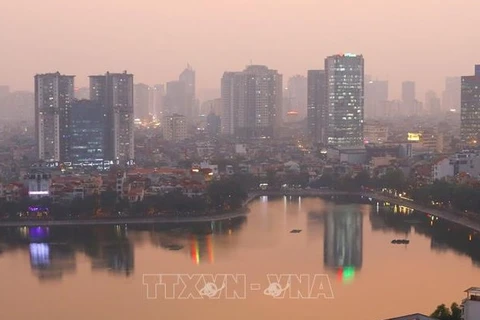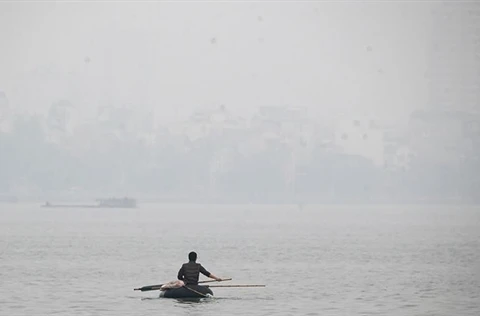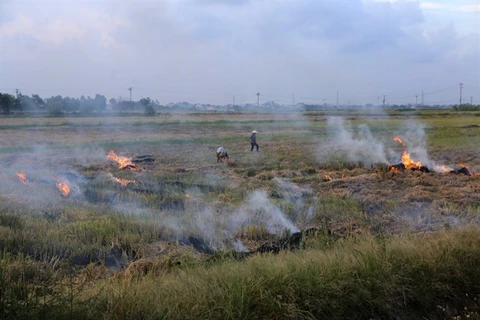Hanoi (VNA) – To contribute to improving the air quality in Hanoi, World Bank Country Director in Vietnam Carolyn Turk has recommended municipal authorities effectively enforce a pervasive ban on burning garbage and agricultural waste, such as straw, in the suburbs.
Addressing a seminar entitled “Air Pollution Management in Hanoi: From Commitment to Action” jointly organised by the WB Vietnam and the municipal People's Committee, Turk gave recommendations for Hanoi to solve the chronic air pollution problem.
The recommendations include banning trash and agricultural waste from being burnt, better supporting agricultural waste management, and taking measures to reduce street dust.
She proposed the city enforce motorbike emissions criteria, encourage the development and use of public transport and electricity vehicles in the city, develop a sustainable waste management strategy to ensure the elimination of outdoor burning, and increase waste collection, classification and recycling rates.
The city authorities need a solution to solve the source of ammonium emissions from agricultural activities and the use of inorganic fertilisers, and should increase emission standards for power plants and industries. Another sustainable path is to increase the percentage of renewable energy, in line with the Prime Minister's commitment to achieve "zero" net emissions by 2050 announced at the 26th UN Climate Change Conference (COP26), and take actions to reduce coal use in craft villages, Turk stated.
The World Bank is willing to strengthen its commitments to support Hanoi in solving its environmental problems to build a greener, cleaner and more beautiful city, she added.
While 40% of Hanoi’s population is exposed to high levels of particulate matter, an alarming two-thirds of the city's air pollution originates from external sources.
These figures are much higher compared to those in the last 7 or 8 years, said Nguyen Thi Le Thu, a representative of the WB Vietnam.
According to a WB Vietnam study, urban pollution emitters only account for one-third of the total pollution sources.
The rest comes from nearby areas in the form of straw and garbage burning.
A Hanoi Department of Natural Resources and Environment report also showed that citizens face the negative effects of pollution and climate change.
Out of the city's 9 million inhabitants, there are 7 million motorbikes and 600,000 cars. These are perceived as the main causes of air pollution in Hanoi.
In 2015, 40% of the city’s inhabitants were exposed to a level of PM2.5 pollutants twice the national standard, and many times higher than the World Health Organization’s recommendations, said Thu. The numbers are not updated for 2023, but with the rise of urbanisation, the WB believes these figures are much higher now.
In his speech at the seminar, Deputy Chairman of the municipal People's Committee Nguyen Trong Dong asked local authorities to gather feedback from experts and scientists to improve the air quality in the city.
Dong said solving these challenges will help Hanoi develop sustainably and move Vietnam closer to the goal of net-zero emissions by 2050.
To achieve the net-zero emissions goal by 2050, support from international organisations and collective actions from all authorities and people of Hanoi are indispensable, he added./.

























